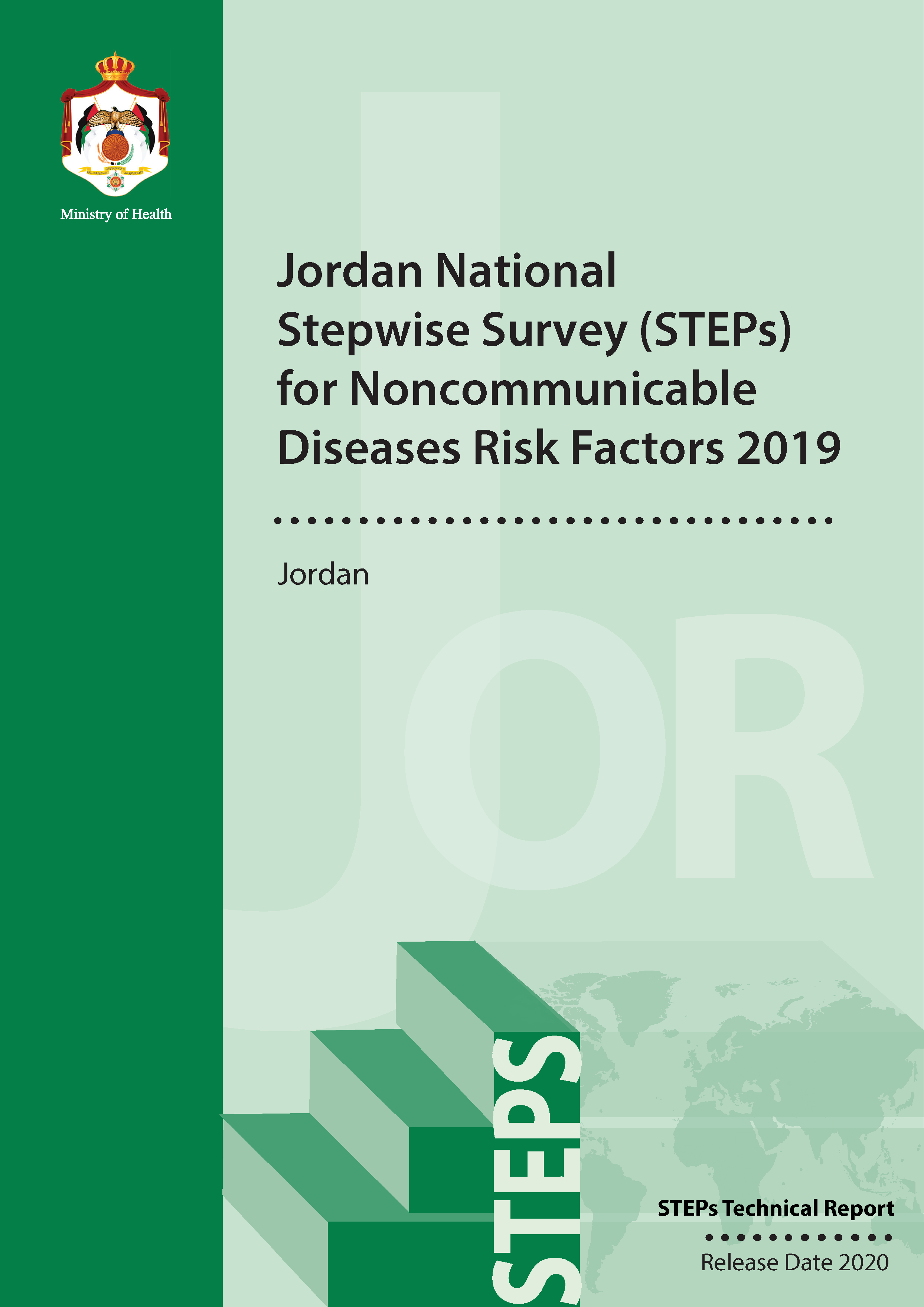 30 September 2020, Amman – Noncommunicable diseases (NCDs) are the leading cause of morbidity and mortality in Jordan, constituting 78% of the total deaths, being mainly cardiovascular diseases, cancer, diabetes and chronic respiratory diseases.
30 September 2020, Amman – Noncommunicable diseases (NCDs) are the leading cause of morbidity and mortality in Jordan, constituting 78% of the total deaths, being mainly cardiovascular diseases, cancer, diabetes and chronic respiratory diseases.
At the end of 2019, the Ministry of Health, in collaboration with the Center for Strategic Studies of the University of Jordan, conducted a national STEPwise survey (STEPs), with the technical support of the World Health Organization (WHO) and generous financial support from the United States Agency for International Development (USAID).
This survey is especially important during the current pandemic crisis as people with underlying NCDs have a high risk for developing severe COVID-19.
The STEPs is a standardized method for collecting, analysing and disseminating data to assess the status of NCDs (cardiovascular diseases, diabetes, cancer, chronic respiratory diseases and mental health disorders and conditions) and related risk factors (tobacco use, unhealthy diet, physical inactivity, harmful use of alcohol and air pollution).
All countries can use STEPs information not only for monitoring NCDs and their risk factors within-country trends, but also for comparing data over time and between countries. Jordan’s STEPs 2019 provides updated information on NCDs situation and trends in Jordan since the latest national survey was conducted in 2007. The survey included a representative sample of 5713 adult Jordanians and Syrians (18–69 years old) of both genders living in Jordan.
Main findings from STEPs show that one of the major NCDs risk factor in Jordan is smoking and vaping. 41% of Jordanians and Syrians are current tobacco smokers and 9.2% are current users of electronic cigarettes. Second-hand exposure to smoke during the past 30 days reached 79% among the same group. Their monthly expenditure for manufactured cigarettes is JOD 60.3 per person with an average consumption of 21 cigarettes a day.
Fruit and vegetable consumption is considered low, where 84% consumed less than 5 portions per day, as recommended by WHO. Alcohol consumption is minimal as reported in 1.4%. One third of the study population always adds salt to their food, 25% do insufficient physical activity and 60% are overweight or obese.
Prevalence of hypertension (raised blood pressure) is 22% of the survey population; half of them (47.8%) do not take medication. Diabetes (raised blood glucose) is found in 20% of adults aged 45–69 years old, and raised total cholesterol is reported in 17.7%. Moreover, those currently suffering from cardiovascular diseases or at high risk of developing cardiovascular diseases in the next 10 years reach 24.5% of the survey population.
Prevalence of depression is 18% and 6.5% of those with depression over the past 12 months received any type of therapy.
NCDs could be prevented by changing policies and actively engaging all sectors through a whole of government and society approach. The STEPs findings and recommendations should be translated into policy actions in line with WHO guidance.
Among these priority actions are the development of a multisectoral NCD strategy and related action plans with the involvement of key stakeholders; the strengthening of NCDs surveillance system at all levels of service providers, the improvement of NCDs programmes at primary health care level and the implementation of “best buys” which are cost-effective interventions to promote healthy lifestyle, prevent and control NCDs and their risk factors like tobacco use, salt and sugar intake and physical inactivity.
This would positively reflect on reducing NCDs morbidity and mortality rates in Jordan and pave the way for achieving the Sustainable Development Goals by 2030.
Jordan National Stepwise Survey (STEPS) for Noncommunicable Disease Risk Factors 2019 (available in Arabic and English)


